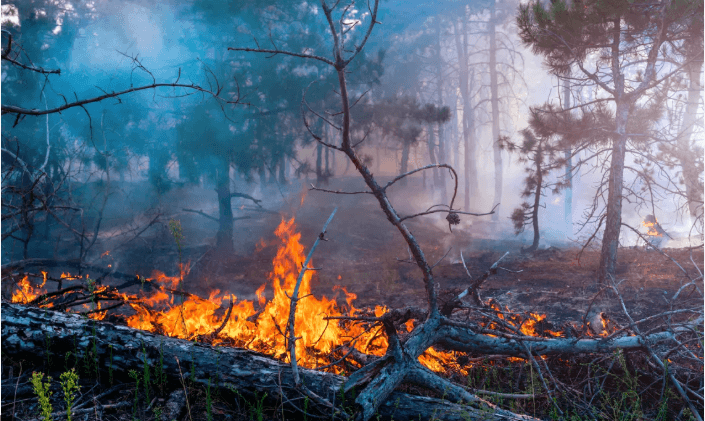
LOS ANGELES (Enmaeya News) — California officials are investigating the origins of the Los Angeles County wildfires, with scientists pointing to climate change-driven extreme weather as a key factor in creating dangerously dry conditions. After years of drought, California experienced heavy rainfall in 2022 and 2023, which promoted vegetation growth. But record heat and dryness in late 2024 turned that growth into highly flammable fuel, leading to the first LA fires on Jan. 7, 2025.
A new report from the Yale School of Public Health warns that “compound extreme weather events”—such as droughts, floods, hurricanes, and wildfires—are becoming more frequent and pose significant risks to public health, especially for those with cardiovascular conditions. The report, led by Dr. Kai Chen, co-director of the Yale Center on Climate Change and Health, stresses the urgency of addressing the crisis: “Climate change can’t be perceived as a distant threat; it is here; it is happening; and it’s affecting millions of lives.”
Wildfire smoke, which carries toxic compounds and fine particulate matter (PM2.5), poses particular risks. These particles penetrate the lungs and increase the likelihood of cardiovascular events such as heart attacks. Dr. Harlan Krumholz, a Yale cardiologist and senior author of the report, noted, “We are seeing cardiovascular events in people who don’t even live close to the wildfires but are still exposed to the dangerous particulates carried by the smoke.”
The report also highlights how successive and co-occurring extreme weather events—such as drought followed by wildfires or heat waves combined with smoke—create a "dangerous synergy" that health systems are ill-prepared to handle. In addition, these disasters often trigger secondary issues like power outages, supply shortages, and transportation disruptions, which further endanger vulnerable populations.
To address these challenges, the report recommends a three-pronged strategy: anticipating risks through predictive models, mitigating impacts with resilient infrastructure, and adapting health strategies to deal with the growing number of climate-related emergencies. “Our understanding and response to these compound events must evolve,” Chen said, calling for stronger systems to handle climate-related health crises.



